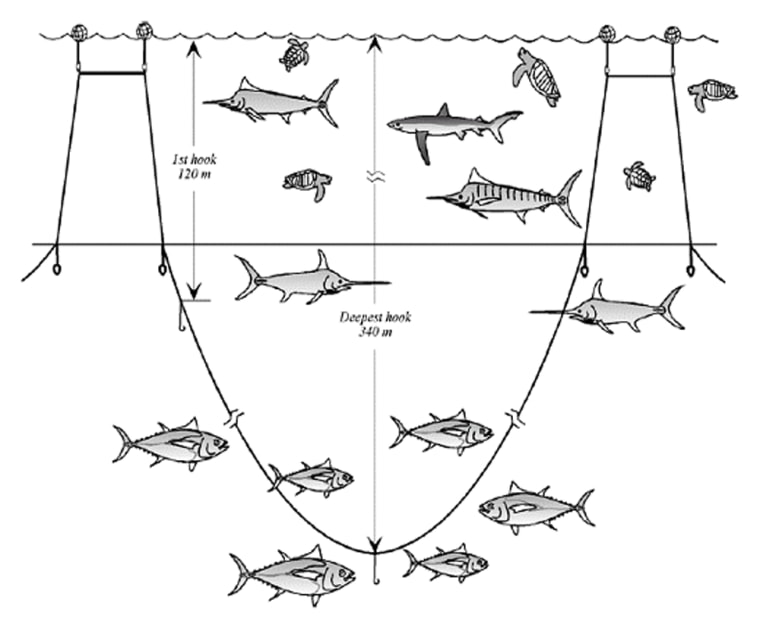Three designs for fishing gear that doesn't trap sea turtles, birds and other so-called "bycatch" took the top prizes in a competition held by the World Wildlife Fund and several partners.
Steve Beverly, a former high school biology teacher, took the top prize and $25,000 for a tuna fishing line that uses hooks only once the line reaches 100 yards below the surface. That's below where sea turtles and birds frequent.
“We’re all dependent on an ocean full of life and, in turn, it’s dependent on our actions,” Beverly, who is now fisheries development officer for the Secretariat of the Pacific Community in New Caledonia, said in a statement. “It’s just common sense to create smarter fishing gear.”
Beverly found that fisheries’ logbook data and studies indicated that sea turtles swim and become hooked in shallower waters than tuna.
In testing by three vessels in Pacific waters, 42 percent more bigeye tuna were caught using Beverly’s new gear for what's known as longline fishing. That's because any bycatch is minimized.
Award sponsors hope that efficiency will encourage the industry to adopt the design.
A statement issued with the awards noted that Duke University researchers estimate more than 200,000 loggerheads and 50,000 leatherbacks are accidentally caught annually by commercial longline fisheries.
“These solutions safeguard our living oceans,” World Wildlife Fund President Carter Roberts said in the statement. “When World Wildlife Fund began the Smart Gear competition, we looked for real-world solutions to protect the fantastic variety of marine life, increase efficiency and profitability for fishermen, and preserve the bounty of the sea for future generations. Today, I’m happy to announce our competition reeled in three promising innovations.”
In addition to the grand prize, one $5,000 award went to a team that combined glowing ropes and stiffer nets to minimize the entanglement of whales. The contest statement said more than 300,000 whales, dolphins and porpoises are estimated to die each year from entanglement, more than from any other cause.
A second $5,000 award went to Indian scientists for their invention to reduce the bycatch of juvenile shrimp and fish in shrimp trawls.
Background on the awards is online at www.smartgear.org.
